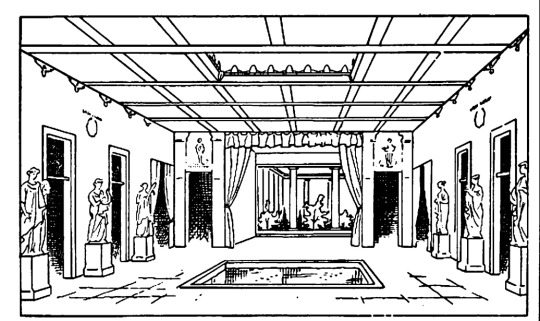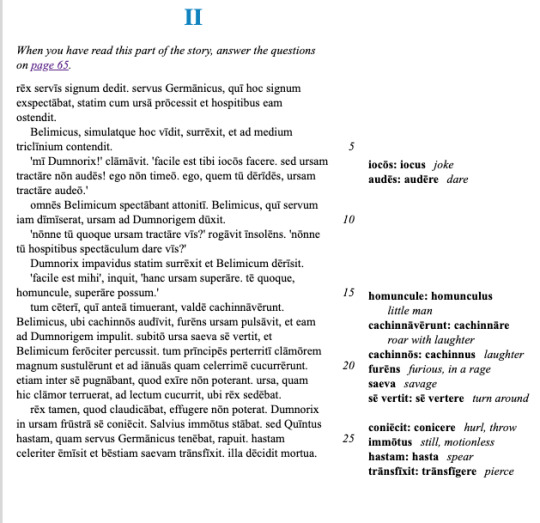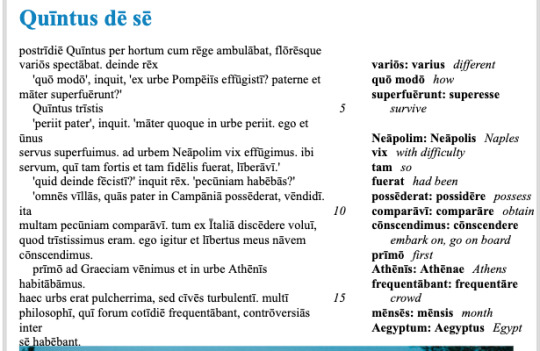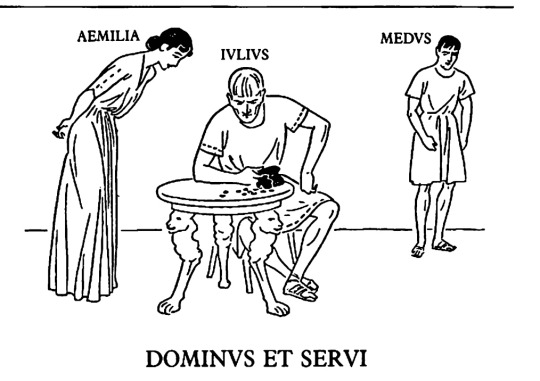#discedit
Text
Through the Shadows and Towards the Light
“[…]Non in alto latet spiritus nec utique ferro eruendus est; non sunt uulnere penitus inpresso scrutanda praecordia: in proximo mors est. Non certum ad hos ictus destinaui locum: quacumque uis peruium est. Ipsum illud quod uocatur mori, quo anima discedit a corpore, breuius est quam ut sentiri tanta uelocitas possit: siue fauces nodus elisit, siue spiramentum aqua praeclusit, siue in caput…

View On WordPress
0 notes
Photo






There's a track on the project called, "Your Name Hurts," and the first line in the song is, "We're a half written story without any ending, you left me to figure it out." That line is one of my favorite lyrics on the project. When something just sort of ends without coming to a proper ending, you feel like there's a part of you missing. It's so hard to regain that composure and focus and stability when something in your life that was so huge, just, is gone. That's where "Half Written Story" came from.
Half Written Story by Hailee Steinfeld
#hailee steinfeld#hsteinfeldedit#dailyhailee#half written story#lyrics#gifs#hs;other#hs;music#discedit
257 notes
·
View notes
Text
A lot of people fearJet Star.
Maybe it’s because he’s so tall. Or because he can lift a grown adult with little effort. It could even be because he can shoot a surveillance bird off a power line at a thousand yards. That he could still shoot with that same deadly level of accuracy after he lost his eye.
But people do fear him. They’ll pick fights with Poison, call their hair stupid or something just to get a rise out of them. Or they’ll spit something at Ghoul and wait until he starts throwing punches because everyone knows he’s a fighter. But Jet?
It’s a well known fact that you shouldn’t mess with him. He doesn’t fight often, but when he does it’s almost a given that he’s going to win. Hardly anyone is stupid enough to pick a fight with him.
#No one other than the four know how much of a softy he is#how he cries when he sees baby animals that're just Too small#or how gentle he can be with the girl#how he gives the best pep talks#especially when you're really down#jet rolls his eyes at the more crazy rumors but#he'll never discedit them#it's fun to watch people think he's so tough#dangerdays#i have lots of thoughts about Jet Star okay?
71 notes
·
View notes
Text
Another new fic.
I'm placing the blame solely on @hrfiction for this and she knows it.
SOMETIME IN 2024
Lt. Chloe Decker was worried. Her daughter Rory was being hunted by the same religious group who had nearly convinced her to send Lucifer back to Hell several years ago. She had thought that Kinley had been the only member of the group, but it turns out she was wrong. They had simply lain in wait for another opportunity to strike, and now they had chosen to target a toddler, simply because she was Lucifer’s child.
She finished writing the letter she had begun to compose when she’d gotten the idea that might just save her daughter. She looked over at Rory, who was happily playing with her block on a very expensive rug belonging to her father, babbling contentedly to herself. She just hoped this plan worked, because it was the only thing she could think of to save her daughter.
Rising, she folded the letter until it was small enough to fit in the pocket of Rory’s denim overalls, and went over to her daughter.
“Hi baby girl.”
“Hi Mama!” Rory reached up, wanting to be picked up. Chloe obliged and held her daughter close to her, memorising her tiny features, her smell and had to fight back tears..
“Do you remember how to make the sparklies, baby?”
Rory nodded, and a look of concentration appeared on her face. “Yep.”
“Good. Mama is going to tell you when you need to go, and then we’ll go.”
Just then, the elevator doors opened, and a man in priest’s garb stood in the car.. “Ms Decker. Hand over the child and this can all end.”
“Quickly baby, make the sparklies.” Rory concentrated as Chloe slipped the letter into the pocket of her overalls. She kissed Rory’s dark hair and set her on the floor, then whispered the date. Rory vanished.
“Where did she go?” He stepped into the penthouse, a gun now in his hands, as he looked around.
“Somewhere you’ll never find her.” Chloe raised her gun, something she’d taken to keeping on her at all times since the religious zealots had discovered Rory’s existence. “Now, leave.”
“I don’t think so.” The man fired his gun, and she felt the burn and pain of the bullet striking her. Damn, she thought. Silently, she sent out a prayer, not knowing if the recipient would even receive it. Within seconds, a woosh of displaced air told her he had, even as she sank to her knees, as her wound started to bleed profusely.
“Chloe!” Lucifer caught her carefully, then noticed the man holding the gun, who began to cross himself. Setting the woman he loved carefully against the settee, he approached the man, eyes glowing with the fires of Hell, wings outspread. It was quite the sight, and the assassin babbled and murmured in Latin under his breath.
“Prayers won’t save you now. I doubt God will appreciate you attempting to kill his niece and sister in law.”
“Recede ergo, praevaricator. Discedite, seductor, plenus mendacii et astutiae, hostis virtutis, innocentium persecutor. Cede, nefanda creatura, da monstri, cede Christo, in quo non invenisti opera tua. Nam te iam tuis viribus expoliavit ac regnum vastavit, vinctum te cepit, arma diripuit. Te proiecit in tenebras exteriores, ubi te et adiutores tuos manet aeterna ruina.”
Lucifer laughed, although well aware of Chloe’s injury and that she was suffering from a large amount of blood loss. “You’re trying to exorcise me? From my own bloody body!”
He roared and flung the man across the room, against the elevator. He groaned, but clambered to his feet. The elevator door opened and the man staggered inside, even as Maze came out.
“This is not the end, Satan. We will rid the world of your influence once and for all, you mark my words.”
Lucifer ignored him, and hurried to Chloe, whose eyes were now closed, but she was still breathing, albeit slowly. He kissed her forehead as he scooped her gently into his arms. He wasn’t sure if he’d get her to the hospital in time to make sure she didn’t bleed to death.
“What the Hell happened here?” Maze stalked over. “Where’s Pint-size?”
“Pint-size? That’s what you’re calling my daughter, Maze? Really?”
“Like you get any say in the matter. What the Hell happened?”
“I don’t know. I’m taking Chloe to Raphael to get her healed and going to see Amenadiel to see if he knows.”
“You’re going to let that feathered prick touch Chloe?”
“She’s not dying again, Maze. Not for a long time yet.” Chloe moaned softly, and he shifted his arms, holding her closer. “I’ll be back when I know more.” With that, he left the sputtering demon in his penthouse.
29 notes
·
View notes
Text
Once again someone tries to discedit me because of my username... It’s Tumblr people, if you think I’m an “internet troll” because I have “troll” in my username then you are *checks notes* a dumb sexy potato. Good for you.
5 notes
·
View notes
Text
«[…] — quid in ista revolvor?
Spes interdictae discedite!»
[…] Perché ritorno in codesti pensieri?
Speranze proibite, lontano da me!
–Ovidio, Metamorfosi, X, vv.335-6
2 notes
·
View notes
Text
LINGVA LATINA PER SE ILLVSTRATA - CAPITVLVM QVINTVM
Kia ĉapitro, miaj amikoj, kia ĉapitro! Multaj aferoj estis lernitaj samtampe ĉi tie, pronomoj kaj pli da pronomoj!
Ĝi nomiĝas «Villa et Hortus».

Rezume Emilia kaj siaj gefiloj estas en la ĝardeno. Julia vidas rozojn kaj montras ilin al sia patrino kaj fratoj. Unu el ŝiaj fratoj, Marko, diras ke ŝia nazo estas malbela. Julia ploras kaj eliras el la ĝardeno. Tiam, post kiam Emilia forpelas la knabojn de la peristilo, Markon puŝas Kinton en la akvon.
Kiel ĉiam, priskribante ilian rutinon. Kaj montrante kiel Marcus improbus puer est.
Ni havas ion novan ĉi tie: Julio ne estas hejme: li estas en opidumo. Kaj, malkaŝaĵo de la sekva ĉapitro, li irantas ien.
Ni jam konas la ablativan kazon, kiun oni devas uzi, se oni volas diri ke io estas ie. In oppido, in Italia, aŭ, uzante ekzemplon de tiu ĉapitro, in horto. Sed ĉi tie ni konas alia kazo en kiu ni ankaŭ uzas la ablativon: uzante la vortoj cum. Jes, ĝi signifas «kun».
Iulius in villa sua habitat cum magna familia.
La vorto villa konfuzis min, ĉar la portugala havas similan vorton, «vila», kiu ne havas la saman signifon de la latina vorto. En la portugala, «vila» signifas «loĝantaro de homoj malsupera ol la urbo, sed supera ol la vilaĝo». Ebla traduko al Esperanto estus «urbeto». Tiukaze, mi ne havis alian opinion eblon: mi bezonis gugli la signifon de tiu vorto. Ĝi signifas «granda kampara loĝejo». Estas ia alpdomo, ĉaledo, sed grandega kaj multekosta. Mi pensas ke mi ne malĝustas se mi nomas ĝin domo.
Ha, kaj novan verbon ni havas: habitat.
Nu, mi vidis cum, kaj kiel la vortoj ŝanĝiĝis kiam ĝi aperas poste ĝi. Sed mi ne komprenis la logikon. Do mi faris ion kion mi ne faris antaŭe: mi legis unue la grammatica latina. Mi ne pensas ke tio estas trompado. Mi ĝin faris ĉar mi pensas ke ne indas legi ion se vi ne komprenas tion. Do mi preferis kompreni kiel ĝi funkcias kaj tiam ĝin legi. Legante la gramatikon, mi vidis ke la vortoj ablativiĝas. La ŝablono estas:
(singulara | plurala)
Vira: -o | -is
Ina: -a | -is
Neŭtra: -o | -is
Ja facile, ĉu ne? Kaj kompreneble tio ne okazas nur al cum, sed ankaŭ al in. Kaj al aliaj vortoj, kiujn ni konos baldaŭ.
Sciante kiel la ablativon funkcias, ĉiuj frazoj faciliĝas:
Villa Iulii in magno horto est. In Italia sunt multae villae cum magnis hortis.
Simplega. Domaĝo ke, pensas mi, tiu simpleco ne daŭros longe, ĉar mi kredas ke estas ekceptoj, ke ne ĉiuj vortoj deklinaciiĝas same.
La novaj pronomoj
Eius ni jam konas. Ĝi estas kiel genitiva triapersona pronomo. Sed kaj ĝia plurala formo? Jen ĝi: eorum. Ekzemplo:
«In villa multi servi hibitant. Dominus eorum est Iulius.»
«Kaj ĉu tio estas uzata en ĉiuj ĝenroj kiel eius?», vi eble domandas. Ne. Neklarigeble la latina volis ke en singulara kazo ĝi estu la sama por ĉiuj, sed en la plurala, ĝi estu malsama. Se vi volas uzi ĝin, la genitivan kazon, rilatante al inaj vortoj, vi devos uzi earum. Ok, ne estas malfacile, sed eĉ tiel mi ne povas kompreni kial ĝia singulara versio ne havas la saman deklinacion.
«Ancillae quoque multae in villa habitant. Domina earum est Aemilia.»
Nun, vidu ĉi tion: «Hortus Iulii pulcher est, quia in eo sunt multae et pulchrae rosae liliaque.»
Atendu, kio estas eo? Eo estas pronomo kiu rilatas al hortus, en ĝia ablativa kazo horto.
Aldonu tiun al rosa, lilium, pulcher, foedus kaj ĉiuj aferoj supre kiujn mi diris. Tio estis kio estas en la unua paĝo sole. Kio okazas??? Ŭaŭ.
Kaj ĉu vi pensas ke ĝi haltis tie? Eĉ ne. La dua paĝo montras ĉi tion:

La domplanto kaj pli ses vortoj novaj!!
Mi estos sincera: mi memoris neniun el tiuj vortoj, krom peristylum kaj cubicula. Kaj ostium, pro tio bildo:

Fenestra estis facila, ĉar tio vorto ekzistas en Esperanto. Dankon Esperanto!
Tio ĉapitro havas belajn bildojn, kiuj montras la domon interne:

Atrium et impluvium

Kaj ne pensu ke tiu libro nur parolas pri la latina. Ĝi ankaŭ parolas pri etimologio, ĉar poste montri supran bildon, ĝi diras: «'Peristylum' est vocabulum Graecum.»
Mi tre ŝatus scii pli, kiel kio la vorto signifas.
Novaj personaj pronomoj: triapersonaj pronomoj estas nun kompletaj!
«Estne impluvium in peristylo? Id non in peristylo, sed in atrio est.»
Kaj, sekve: «Suntne magna eorum (servorum) cubila? Ea non magna sunt[...]»
Nun mi scias kiel diri «li», «ŝi» kaj «ĝi»! Is, ea, id. Bonega! Mi sentas ke la livro mem komenciĝis nun! Ĉar ni estas vidanta situaciojn pli kompleksaj kaj samtempe aperas vortoj esencaj por krei frazojn.
Kaj la plurala formo ankaŭ!
Ĉio kune kaj en la sama paĝo: la plurala formo de is ankaŭ aperas:
«Ubi dormiunt servi? Ii quoque in cubiculis dormiunt.»
Ĉu sole vira plurala formo? Ne, ne! Ina plurala formo ankaŭ aperas!
«Etiam ancillae multae in uno cubiculo dormiunt, neque eae magna cubicula habent.»
Ĉio samtampe! Mi bezonis halti kaj relegi ĝin kelkajn fojojn por ripari ĝin en mia menso.
Kaj la ĉapitro ne laciĝas! Tiam ĝi donas al vi tion: «Aemilia in peristylo est. Estne sola? Aemilia sola non est: liberi cum ea in peristylo adsunt.»
Bonŝance, la libro instrui bone. Ĝi estis facila por mi kompreni kio signifas ea: triapersona ina ablativa kazo.
Kune kun tio, aperas sine, la mala de cum. Simila al «sen» en Esperanto. Bonŝance la vortoj estas ankaŭ ablativoj post ĝi.
Bombardo de informoj!
Vidu kion mi devis lerni:

Ni ne forgesu ke la ĉapitro instruas tion plus la aferoj kiujn mi montris antaŭe. Tio estas, multaj vortoj!
Mi komprenis la signifon de ab kaj ex, sed mi ne havis tradukon por tiuj vortoj. Mi volas diri, en Esperanto ni diris «de» en ambaŭ kazoj. La problemo estas ke mi ne scias kio tiuj vortoj signifas gramatike. Ex mi pensas ke estas «de tiu loko», «punkto de origino», kiel «from» en la angla. «Julia venas de la ĝardeno» Kaj ab? Mi komprenis la signifon de la vorto, dank'al la ilustraĵo, sed mi ne sciis kiel ĝi funkcias gramatike. Do, mi denove serĉis responson ekster la libro, en retejo nomita «Latin is Simple». Mi komprenis tiam ke gramatike ĝi signifas «foriri de certa punkto». Aŭ, uzante la verbon discedit: «Foriri de specifica punkto (Emilia) al alia ne specifita». Cetere, la vorto «for» en Esperanto havas similan signifon, kiu estas «moviĝi malproksime». Uzante tiun kiel prefikso, ni havas la verbon «foriri» (uzita supre), kiu mi pensas ke ĝi estas la perfekta traduko por tiu frazo: Julia foriras Emilia. Aŭ «Julia foriras de Emilia»? Mi ne scias.
Ĝi ne uzas «plaĉi al iu»
Aperas la sekva frazo: «Verba Marci Iuliam non delectant».
«Eble signifas “feliĉigi”?», mi pensis. Denove, mi uzis Latin is Simple. Kaj mi kredas ke tiaj konsultoj estus pli oftaj. Tie, mi vidas ke estas io kiel «sorĉi». Ne tiom malsama ol «feliĉigi». Sed mi min demandis: «Kial ĝi ne uzis la verbon “placeo”?» Verbo kiu signifas simple «plaĉi». Do mi memoris ke tiu verbo estas nerekta verbo, kiel Esperanto. Oni ne diras «Tio plaĉas min», sed «Tio plaĉas al mi». Same okazas al la latina. Do mi pensas ke la libro me uzis tiun verbon ĉar tio estus multe por nur unu ĉapitro, ĉar ĝi havus montri la nerekta kazo de la triapersona pronomo. Mi kredas ke baldaŭ mi vidos ĝin.
Triapersona pronomo, sed plurala!
Kio faris tiun ĉapitro malfacila ne estis la kvanto de novajn vortojn, sed la gramatikaj reguloj kiujn mi devas lerni por kompreni ilin, kaj batali por ne ilin konfuzi.
«Delia et Syria ex atrio veniunt. Aemilia eas interrogat.»
«“Age, Delia! Discede et interroga eos!”»
Estis tiom multaj vortoj, ke mi eĉ kreis tabelon simplan por mi sistemigi kion mi lernis ĝis nun. Vidu:

Ea, id, ii, eae, eorum, earum, eos, eas, ambaŭ eo, ea, ambaŭ iis: ĉiuj tiuj mi lernis en nur unu ĉapitro.
La komo poste kelkaj vortoj estas ĉar mi scias ĉu ekzistas tria, tio estas, la neŭtra kazo.
Grammatica Latina
La gramatiko nenion novan havis. Jen la sama metodo por instrui. Montris kiel funkcias la akuzativo. Amuza afero estas ke kaj la nominativo kaj la akuzativo de la neŭtraj vortoj samas. Unu malpli afero por memori.
Ankaŭ montras la ablativon, sed mi jam pri ĝi parolis.
Imperativus et ablativus
Tie ĉi ni vidas ĉiujn kazojn de la imperativa formo de la verboj. Mi kredas ke tiu ŝablono ne ŝanĝiĝas, krom malregulaj verboj, kiel ĝi okazas al la itala, la portugala... Lingvoj derivitaj de la latina.
Denove, mi vidas konfuzo inter la du verboj kiuj finiĝas per -it. Mi ne scias kiel rekoni, kiel scii kiam temas pri unu kaj kiam temas pri alia.
Ni finigas, do, la ĉapitron! Jen frazo en la latina kiun mi ĉiam skribas: Iulia ab Aemilia discedit et iam in horto est, quia rosas videt. Rosae eam delectant.
Mi ne havas multan kreemon por krei frazojn, kaj la limigo kiun mi havas pro la kvanto multaj vortoj kiujn mi konas min komplikas. Sed tio baldaŭ ŝanĝiĝos.
#Lingua Latina Per Se Illustrata#Chapter 5#Latin#Latin language#Learning Latin#Learn Latin#Esperanto#Esperanto language#Eo#Linguistics#Language#Languages
5 notes
·
View notes
Text
So like I get people joking about how ridiculous it was when trump was essentially like ingest disinfectant to combat coronavirus. But like for years Autism™️ parents has had their children ingest bleach and/or enemas to “cure” their children. And considering trump has already anti-vax shit before, this will definitely enabling people. So discedit this shit where you see it.
(Let me know if I should add anymore cw’s)
5 notes
·
View notes
Text

Ego intus mortuis. Obumbratio vivere intra corpus meum. Discedite. Me solum relinquatis. Servo te.
I am dead inside. Shadows live inside my body. Depart. Leave me alone. Save yourself.
1 note
·
View note
Photo

Cibus consumat unus tantum scriptor cerebrum potentia et stimulat, potentiale, quod etiam vehementer redigendum potentia cerebri exercitium disciplina, discedite ab tentationis in structuram uber. https://www.instagram.com/p/CE5jCcLBg8v/?igshid=13ltzs57xl2p
0 notes
Photo






Kiana Ledé Discography: Myself (2019)
Myself is such a strong word. Putting yourself first, it’s so hard to do that. It’s so hard to take time out of your day to think about yourself for at least 10 minutes and meditate or do yoga or whatever you like to do. I hope this EP also helps people understand that it’s okay to feel vulnerable and just be in the moment and live your life.
69 notes
·
View notes
Text
Latin 16
First Lets vocab
https://www.memrise.com/course/313058/cambridge-latin-course-book-2-9/4/

Belimicus, the chieftan of the canticii, after dumnorix won in the boat competition, was bearing the thing gravely. He was very angry. All the guests, who the king had invited to the palace, were deriding him. The canticii also were deriding him and were cursing him. Even the slaves, who found out about the shipwreck, were laughing in secret.
‘That Dumnorix decieved me’ Belimicus said to himself ‘ He forced me into the reef and took the price unfairly. It is proper for me to punish him’
Belimicus thought to himself and made a crafty plan. There were in the palace many beasts, which the king had imported from many lands. Amongst these beasts was a huge bear, which a Geot afrman slave was looking after. Belimicus approached this slave.
‘This animal is magnificant’ he said ‘ it pleases me greatly. I want to handle the bear; I am not afraid of him’
therefore the chietan was coming to the bear each day; He was giving food and water to the bear. Gradually he made the bear tame. At last he could handle the bear alone.
Soon Cogidubnus announced a meal and spectacle. He invited friends to the palace. Belimicus at once hurried to the German Slave.
‘The king gives a show today’, he said. ‘Today this bear I want to lead into the palace. Now I can handle him. I want to show him to the guests’
The slave unwillingly consented. Belimicus cackling to himself said,
‘I am ready. Now Dumnorix I can punish’

The king gives a show
The king was eating in the palace with many guests. Salvius and Quintus were lying near the king. The britains were praising the food, the romans the wine. All the guests were giving thanks to the king.
Suddenly Belimicus entered late.
‘Look! Our shipwrecked sailer enters’, shouted dumnorix ‘ surely you havent lost another ship?’
others were deriding Belimicus and praising Dumnorix.
Belimicus however responded nothing, but sat down in silence.
The king announced to his guests the show. At once dwarves with dancing girls entered and entertained the guests.
Then when the king gave a sign, all exited. Salvius, who the dwarves did not please, shouted.
‘This food is good. I have never eaten better food.But the bear, which dances, I want to see it. That bear pleases me much more than dancing girls and dwarves’

The king gave a sign to the slaves. The german slave who was expecting this sign, at once proceeded with the bear and showed her to he guests.
Belimicus, as soon as he saw this got up and to the middle of the dining room hurried.
‘dear Dumnorix’ he shouted ‘it is easy for you to make jokes. but you dont dare to handle the bear! I am not afraid. I, who you deride, dare to handle the bear ‘
all wastched belimicus astonished. Belimicus, who sent away the slave now, led the bear to dumnorix
‘surrely you want to handle the bear also?’ he asked insolently ‘ surely you want to to give a show to the guests’
Dumnorix undaughted at once stood up and derided belimicus
‘ It is easy for me’ he said ‘ to overcome this bear. you are, despite being a little man, able to overcome it’
Then the overs, who were before afraid, cackled greatly.
Belimicus, who heard the cackling, hit the bear in a rage, and sent her towards dumnorix. Suddenly the savage bear turned to him and attacked belimicus ferociously. Then the chieftens terrified roused a great noise and very quickly ran towards the doors. Even amongs themselves they were fighting because they could not exit. The bear, which was afraid of this noise, to the chair ran, where the king was sitting.
The king however, who was lame, couldnt flee. Dumnorix hurled himself at the bear in vain. Salvius was sitting immobile. But quintus siezed the spear which the german slave was holding. The spear he threw quickly and pierced the beast. She fell down dead.

Feel as though we missed something because this chapter introduces the pluperfect
Its pretty simple though just imagine the perfect stem and then add the ‘to be’ conjugating on the ends.
So portavi becomes portaveram
so I carried to I had carried

Discedit would become discesserat
fecit would become fecerat
----------------------------------------------------

Quintus about himself
The next day quintus was walking through the garden with the king, and he was llooking at different flowers. Then the king said
‘ how did you escape the city of pompei? Did your mother and pather survive?’
Quintus sadly said ‘ father perished and mother also perished in the city. I and one slave survived/ We fled to the city of Neopolis with difficulty. Where the slave, who had been so brave and so loyal was freed’
‘What then did you do?’ said the king ‘ had you money?’
‘All the houses, which my father possesed in Campania, I sold. Then I obtained much money. Then i wanted to love italy, because I was very sad. I therefor and my freedman embarked on a boat.
First we came to Greece and in the city of Athens were were living. This city was very pretty, but the citizens were riotous. Many philosophers were crowding the forum each day and were having arguments amongst themselves.
After a few months, i wanted to see another city. I therefore sailed to egypt, and soon we came to the city of alexandria.
0 notes
Note
Olá, poderia dizer o que acha do meu blog? E dizer se eu preciso melhorar alguma coisa nele?
Eu não sei se entendi muito bem, ele é um tumblr só de reblog de resources? Eu gostei do theme!
0 notes
Text
One word minor banishing
"Discedite" Latin->depart
10 notes
·
View notes
Text
LINGVA LATINA PER SE ILLVSTRATA - CAPITVLVM QVARTVM
Kaj jen la ĉapitro kvar! Ĝia nomo estas «Dominus et servi»

Tiun ĉapitron mi legis tre rapide. Sed ne ĉar ĝi estas malgranda (estis kion mi pensis unue), sed ĉar mi ŝategis ĝin tiel, ke la tempo pasiĝis rapide. Kvankam ĝi havas multajn, kaj multajn novajn vortojn... Fakte, ne, ne multaj vortoj... Ni diru multaj vortoj kiujn mi ne konis.
Unue, mi diros resume la rakonton: Julio kalkulas kiom da moneroj havas sia mansako. Li atendis ke estus 100 tie, sed estas nur 10. Li vokas siajn servojn kaj demandas al ili kie estas la moneroj. Neniu sciis diri kie ili estas. Fine de la rakonto, Julio ne ekscias kie ĝi estas, sed al mi estas dirita ke Medo, la servisto de Julio, estis tiu kiu prenis la moneroj.
Ĉu la sekva ĉapitro diros kio okazas poste, mi ne scias. Julio ekscias kun kiu estas siaj moneroj, ĉar Emilia diras al li ke Medo havas ĝin, ĉar lia mansako estis plena. Kiel ŝi venis al tiu konkludo mi ne scias, sed nun Julio scias kie ili estas.
Bone, kio la libro montras, krome diri kiel diri «sako», «mono» kaj «monero», estas kiel kaululi de unu ĝis dek. Unu, duo, tres, quattuor, quinque, sex, septem, octo, novem, decem. Tiuj estas la nombroj en la latina, de unu ĝis dek.
Alimaniero diri «hic est»
Hic est, kiel ni scias, signifas «ĉi tie estas», triapersona, singulara. Sed la ĉapitro ŝanĝas tion, kaj donas al mi alimaniero diri la saman aferon: ad-est, adest. Kaj ĝia malo: ab-est, abest. «Medus adest. Davus non adest, sed abest»
Imperativo
La imperativo aperas surprize. Kiam mi legis, mi pensis ke en tiu momento la libro komenciĝis esti malfacila. Sed mi rimarkis ŝablono. Vidu la imperativajn vortojn: voca, veni, saluta, audi. Kio ili havas komune? Ĉiuj estas skribitaj en la samformo de triapersona singulara verbo, sed sen la -t. Do, tio estas simple, ĉu ne? Ni devas sole preni la «t» de fino kaj ni havas imperativon. Hmmm, ne. Ĉar estas afero kiun ni vidos estontece, kiam la libro montras ĝin. Kaj, samtempe imperativo, ni vidas:
Vokativo
«Iulius: “Ubi est Davus? Davum voca!”
Medus davum vocat: “Dave!”»
Jen ĝi. Ŝajnas simpla: ni anstataŭigas -us per -e. Sed ĉu tio estas kiel la imperativo, kie la ŝablono havas detalon? Ne! Tiuokaze, almenaŭ tiom kiom mi estas en la libro, ne ekzistas escepto al tiu regulo. Vokativo, en viraj nomoj, estas farita simple uzante -e.
Genitiva kazo en persona pronomo
«Davus sacculum suum in mensa ponit. Iam sacculus eius in mesa est.»
Ok, tio estas, do, singulara triapersona poseda pronomo, en la genitiva kazo. Facila. Sed io konfuzis min, la frazo kiu venas antaŭe ĉi-supre:
«Davus sacculus suum in mensa ponit»
Suum... Kial tiukaze estas uzita suum, kaj alikaze, eius? Mi rimarkis ke la diferenco estas kiel «sia» kaj «lia». Unu rilatas al la subjekto de la frazo, ĉiam, la alia povas rilati al io kio povas ne esti en la frazo. Tio ripetiĝas en alia frazo: «Iam sacculus Davi non est vacuus: in sacculo eius est unus nummus.» En la lasta frazo, kie estas uzita eius, la subjekto estas nummus, ne Davo. Tio estas, mi pensas ke oni uzas suus sole kiam ĝi rilatas al subjekto de la frazo, kaj eius, kiam la homo aŭ afero al kio ĝi rilatas en la frazo ne estas.
La unua nominativa persona pronomo!
Ĝi aperas en la momento en ke estas dirita ke Davo estas kun la monero de Julio.
«Cur Davus discedit? Davus discedit quia is pecuniam domini in sacculo suo habet!»
Jes, «li» em la latina estas is. Konfuza estis unuvide por mi, ĉar mi konfuziĝis ĝin pro la verbo to be, en la angla.
Ah, kaj vi ankaŭ vidas suo, kiu rilatas al la subjekto de la frazo, Davo. Denove tui kiun mi diras aspektas korekta.
«Eius sacculus non est vacuus!» diras Emilia, en la sceno tri. La ripeto de la libro pli foje helpis min. Multe probable tio estas la diferenco inter suus kaj eius.
GRAMMATICA LATINA
Kaj tiam la latina gramatiko. Ĝi diras al mi kio estas vokativo. Feliĉe, ĝi estis facile komprenebla. Sed tiam ĝi parolas pri la imperativo.
Ĝi montras resumon:
[1] -a -at
[2] -ē -et
[3] -e -it
Maldekstre imperativo, dekstre nominativo. Ĉi tie ni vidas ŝablonon, kiu faras esti facila uzi la imperativon, ĉu ne? Ne ekzakte, ĉar ne estas tri, sed kvar kazoj de imperativo:
[1] -a -at
[2] -ē -et
[3] -e -it
[4] -ī -it
Tio estas, ekzistas du specoj de verboj kiuj finiĝas kun -it, kie ĉiu havas sian propran imperativon. Tio malfacilas ĉar mi ne scias diferencigi ilin. Ekzemple, unu verbo estas discedit, kaj la alia estas audit. Ambaŭ finiĝas kun -it, sed kiel mi scius ĉu mi uzas -e aŭ -i? Mi atendas scii tiun pli rapida ol ebla.
Ekzercoj
Kaj, kiel kutime, ni havas la ekzercojn. Nenio malsama ĉi tie. Mi ilin faris kaj tiam mi finigis la ĉapitron. Kaj kia ĉapitro!
Mia sperto estas estanta tre bona! Lerni la latinan estas ja interesa kaj amuza. Jes, ĝi estas malfacila foje, sed tio ĉio vale a pena no final.
Jen la frazo kiun mi skribas ĉiam en la fino: Iulius suam pecuniam non habet, quia eius servus eam sumit et ponit eam in sacculo suo.
Granda frazo! Mi tre atendas ke ĝi estus korekta. Mi uzis la posedajn pronomojn, kiujn mi ne konas ĝuste. Eble mi de la estonteco scios ĉu mi ĝustas aŭ malĝustas.
#Lingua Latina#Chapter 4#Latin#Learning Latin#Eo#Learning#Learning languages#Linguistics#Latin language#Esperanto#Esperanto language#Lingua Latina Per Se Illustrata
2 notes
·
View notes